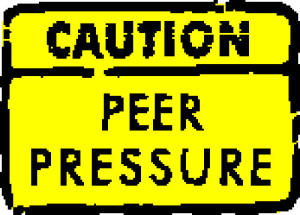 The last post touched on teenage independence, moving away from parents and establishing their own identities. Let’s delve into this topic a little deeper, since it’s a very important part of the adolescent phase of development.
The last post touched on teenage independence, moving away from parents and establishing their own identities. Let’s delve into this topic a little deeper, since it’s a very important part of the adolescent phase of development.
Sometimes it seems that our teens are asking us to get out of their lives, but they really don’t mean it. What they are desperate for is their independence and to form their own identity, different from their parents. That yearning for independence and accompanying distance often seems like a determination to keep their parents at bay, which can be rough on parents, who maybe hanging on to stay connected. Parents need to do just that, maintain a good connection with their adolescent, no matter how hard and challenging it may seem to do so.
“You’re ruining my life!” “I can’t stand being in this family!” Or from the parent’s point of view, “First she criticizes me whenever I say anything. But then when I don’t say anything, she gets mad at me for ignoring her. Damned if I do, damned if I don’t – I just can’t win with her.” It’s hard to love an adolescent who blows minor things up way out of proportion, debates every little issue, or answers every question with a monosyllable. Yet love them we must, for it is exactly what they need, even when it seems like they don’t want our love or could care less. Hang in there and know that you’re doing the right thing.
The challenge of maintaining the balance between connection and prying, between giving love and getting verbal abuse, between guidance and power struggles is a tough line to walk. But walk it we must, even if every day is a struggle, for the better part of 10+ years. Not to paint a wholly negative picture, because there are many wonderful moments inside of the adolescent years for sure. But it is also a very trying time for many parents, requiring skills instead of the gritting of teeth and looking the other way until the years gratefully pass.
So what are some of these skills? One is to understand that this is a very natural part of growing up, even while disliking it. You don’t have to enjoy the process, but recognizing it for what it is helps you to get through with minimal damage. Learn not to take it personally, when he yells mean things in your direction. Another help is to lower your expectation of what your teen is capable of giving during this tumultuous time for them. They are going through so many changes, physical – raging hormone shifts – and mental – rapid brain development – plus the novelty of it all, going through it without a roadmap. Maintaining a good sense of humor is another helpful skill. Humor can really help to maintain good relationships. There’s nothing like a good laugh to break the tension. And apologizing when you are wrong and have made a mistake, when you overreacted when you shouldn’t have, is a good way to express how much you care.
COMMUNICATION TAKEAWAY: We always love our kids, but admittedly that love can be highly tested during the trying adolescent years. But it is of paramount importance to maintain a good connection, deliver strong guidance, and keep pouring on the love during this time when they may be pushing towards independence, necessitating a push away from their parents. Holding on to a connection, enforcing consequences as part of guidance, reminding of the deep level of caring you have for them will ultimately help them get through these years. And when they emerge on the other side, the adult relationships will be stronger because of the turmoil.









